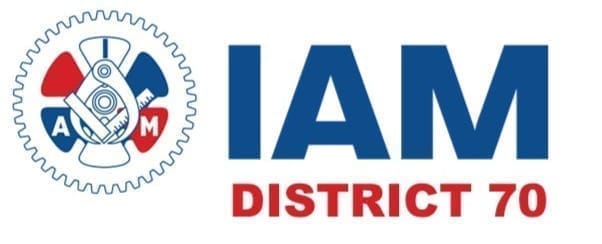The IAM urges the Biden administration to shape an Indo-Pacific Economic Framework, also known as IPEF, that prioritizes benefits for the American worker. This includes transparency in the negotiation process as well as enforceable labor standards.
On Monday, President Joe Biden announced the launch of the IPEF, a multi-nation trade strategy intended to solidify U.S. ties in the region. The IAM has been involved in recent discussions with the United States Trade Representative (USTR) and the Department of Commerce, the two agencies tasked with sculpting the IPEF.
“I thank the Biden administration for seeking input from labor unions such as the IAM as they shape the IPEF. As I told U.S. Trade Representative Katherine Tai and U.S. Commerce Secretary Gina Raimondo during a meeting earlier this month, the IAM is not against trade, but we are against unfair trade policy,” said IAM International President Robert Martinez Jr. “We’ve seen the hardships on workers due to bad trade deals like NAFTA and CAFTA. That said, we strongly encourage the IPEF to include binding and enforceable labor and environmental standards. It is not fair for our nation’s workers to be forced to go up against a competing nation that does not recognize human rights like collective bargaining or even environmental protections that could result in a company’s production facility poisoning workers and their families. We encourage IPEF to be a trade strategy that requires involved nations to match U.S. labor and environmental laws.”
Martinez has also said that trade policy should be led by USTR and the U.S. Congress, which has the expertise of lawmakers and support staff who know labor, environment, supply chain and other factors involved in fair trade policy. The proposed IPEF does not require congressional ratification.
The proposed IPEF is made up of 13 nations, including countries like Vietnam and Malaysia, which the IAM has historically raised human rights concerns with during the proposed Trans-Pacific Partnership (TPP) during the Obama administration. The TPP deal was eventually withdrawn.
“As we’ve said in past, the TPP placed corporate interests over basic human rights. The failed TPP would have promoted wage declines and outsourcing of hundreds of thousands of domestic jobs to countries like Vietnam, Malaysia and Brunei, which historically fail at recognizing fundamental human rights, like the right to join a union, engage in collective bargaining and be free from discrimination, child labor and forced labor,” Martinez said.
The post Machinists Union Urges American Worker-focused Indo-Pacific Economic Framework (IPEF) with Binding and Enforceable Labor and Environmental Standards appeared first on IAMAW.
